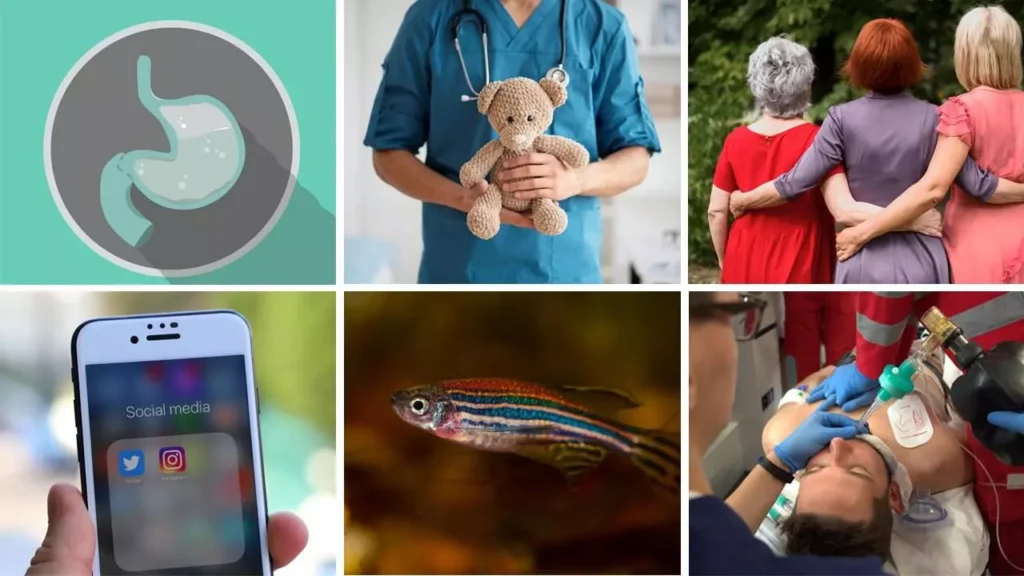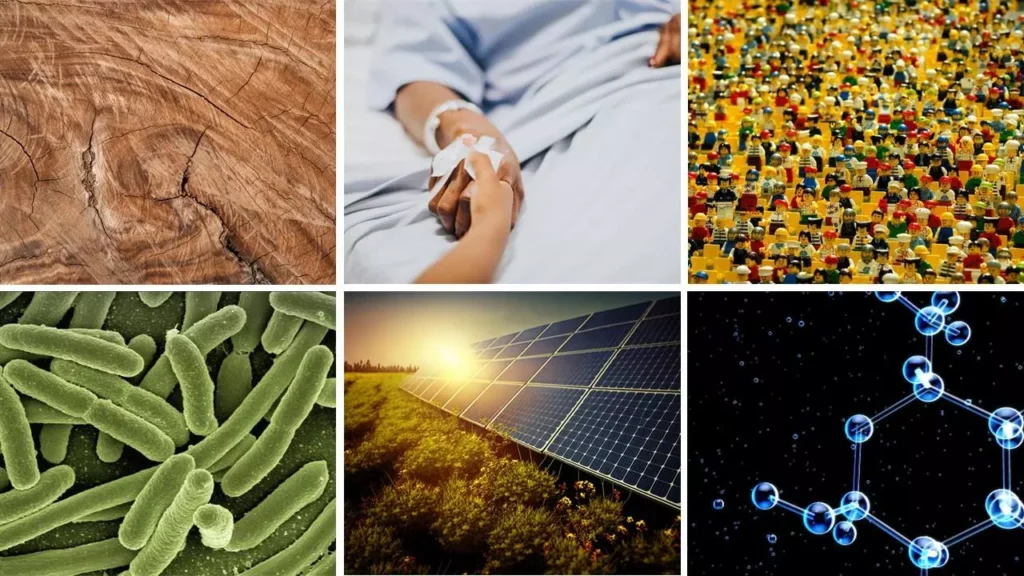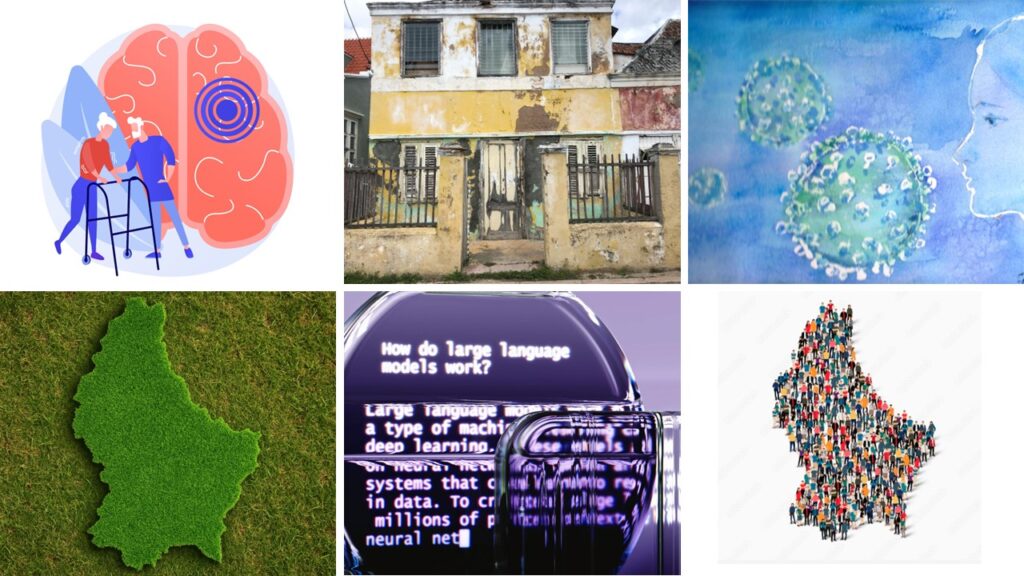10 selected Research Luxembourg results – July 2024
27 August 2024

Luxembourg News in Science & Research
The real impact of “sustainable” investments funds; Agriculture of the future and AI; The link between the microbiome and multiple sclerosis; A new security protocol to monitor anonymous communications without compromising privacy; The possible link between COVID-19 and neurodegeneration: here are the latest scientific news from Luxembourg.
Pexels; Flickr
This article was originally in French and German on science.lu
“Sustainable” Investment Funds: What Are Their Real Impacts?
Luxembourg Institute of Science and Technology (LIST)
Even investment funds labelled as “sustainable” can have negative environmental and social impacts, according to a recent study by the Luxembourg Institute of Science and Technology (LIST). The findings highlight the complex trade-offs involved in sustainable finance.
The researchers proposed 13 environmental impact indicators and 13 social impact indicators based on life cycle assessment. In practice, they assessed a sample of 230 self-declared ‘sustainable’ investment funds across all these indicators. The overall estimated environmental and social impacts were significant and negative.
This study is particularly important in the fight against “greenwashing” and highlights the uncertainties surrounding the environmental, social and governance (ESG) ratings currently used to assess companies against European standards.
To the press release / To the publication
A Balance Between Privacy Protection and Lawful Interception of Communications?
A new security protocol makes it possible to monitor encrypted or anonymous communications without compromising privacy. How is this achieved? By means of a carefully designed anonymous committee: it grants temporary access to the data of certain designated users on the basis of a judicial warrant, the legitimacy of which has been pre-vetted by a broad committee of regularly renewed anonymous entities.
This protocol is based on advanced cryptography. The warrant (encrypted) is deposited by law enforcement agencies in an inviolable public repository.
This new security protocol was developed by researchers at the University of Luxembourg in collaboration with KASTEL Security Research Labs. The right to privacy is enshrined in Article 7 of the Charter of Fundamental Rights of the European Union; end-to-end encrypted communications are essential to preserve this right, but they also pose significant challenges to authorities tasked with fighting crime.
To the press release / To the publication
The Agriculture of the Future: Powered by AI?
How can artificial intelligence be used to improve food production in a sustainable way? The University of Luxembourg has published a roadmap to effectively harness the benefits of AI in agriculture. The aim is to improve the efficiency, yield, quality and safety of agricultural production.
In practice, vision systems, such as a multimodal short-range camera system, are expected to complement human vision. These systems will enable automation and provide additional agronomic insights to better understand crop growth dynamics. The interconnection of tools through the Internet of Things (IoT) offers numerous opportunities to improve the production, logistics and sale of food products. An example already implemented in Luxembourg is IoT monitoring in viticulture, which helps to anticipate and manage vineyard diseases.
This roadmap is part of a broader effort to develop sustainable agricultural practices to better feed a rapidly growing world population.
To the press release / To the publication
What Is the Link Between the Microbiome and Multiple Sclerosis?
Luxembourg Institute of Health (LIH)
In a groundbreaking study in mice, the Nutrition and Microbiome group at the Luxembourg Institute of Health (LIH) has shed light on the complex relationship between the gut microbiome and a neurodegenerative disease, multiple sclerosis (MS), focusing on the gut-brain axis. In particular, they elucidated the dual role played by a specific bacterium called Akkermansia muciniphila. The researchers found that this bacterium was associated with less severe disease in mice with certain microbiome compositions, but also with increased disease severity in the presence of other bacteria.
Their research identifies “microbial risk factors” or biomarkers that can help predict the progression and severity of multiple sclerosis. For example, if certain ‘reporter bacteria’ are more coated with immunoglobulin A (IgA) before the onset of the disease, the person tends to develop a more severe form of the disease.
This has significant implications for the diagnosis and treatment of multiple sclerosis, a debilitating autoimmune disease that affects around 1.8 million people worldwide.
To the press release / To the publication
Literacy choice: German or French?
Pupils who learn to read and write in French achieve better academic results in their literacy language than the reference sample who learn to read and write in German. This is the conclusion of an interim report by the Luxembourg Centre for Educational Testing (LUCET) at the University of Luxembourg. The tests in question are oral comprehension and early reading and writing skills.
This report concerns the pilot project “Zesumme wuessen!”, which will be launched in the 2022/2023 school year in four primary schools in Luxembourg, offering the choice of reading and writing in either French or German in mixed classes. The aim of the project is to reduce educational inequalities in Luxembourg at the beginning of schooling. The researchers are basing their findings on data from the standardised tests (ÉpStan) collected in the autumn of 2023.
According to the university’s press release, this first evaluation should be interpreted with caution. On the one hand, the tests differ in the language of literacy. On the other hand, the size of the pilot groups is small.

New Advances in Understanding Parkinson’s Disease
Luxembourg Institute of Health (LIH)
How do microglial cells, the brain’s primary immune cells, respond to inflammation and genetic stress? Scientists from the Neuro-Immunology group at the Luxembourg Institute of Health (LIH) have made a major breakthrough in understanding Parkinson’s disease by explaining this phenomenon.
The main risk factor for Parkinson’s disease is ageing, together with key genetic factors such as a defective PARK7 gene. The research team studied the different changes in microglia in mice lacking the PARK7/DJ-1 gene, both under normal conditions and when exposed to inflammation, compared to healthy mice. They found that microglia in PARK7/DJ-1-deficient mice had a reduced ability to mount effective immune responses and protect against oxidative stress.
This study may pave the way for innovative therapeutic approaches targeting microglial cells to slow disease progression.
To the press release / To the publication
What Are the Benefits of Dietary Fiber?
Luxembourg Institute of Health (LIH)
A recent study published by the Nutrition, Microbiome and Immunity group at the Luxembourg Institute of Health (LIH) explores the less studied aspects of fibre fermentation.
Their research shows that dietary fibre produces numerous compounds that have a significant impact on our health. The microbial degradation of fibre contributes to the production of several bioactive substances, such as secondary bile acids, amino acid derivatives, neurotransmitters and B vitamins. These compounds are essential for maintaining our physical well-being. The researchers also introduce a new concept called “celobiotic”, which refers to the release of bioactive compounds trapped in fibres during microbial fermentation.
These findings are particularly relevant in the context of precision medicine, as they could help tailor fibre supplementation therapies based on each patient’s microbiome.
To the press release / To the publication
Can a SARS-CoV-2 Infection Lead to Neurodegeneration?
Luxembourg Centre for Systems Biomedicine (LCSB)
Recent research suggests a possible link between COVID-19 and neurodegeneration, with contributions from researchers at the University of Luxembourg. Their findings suggest that while the virus may lead to neurodegeneration in some cases, the risk does not appear to be significantly higher than that associated with other infectious diseases. Not all COVID-19 patients develop neurodegenerative disease. The mechanisms that follow SARS-CoV-2 infection are not fully understood.
One hypothesis is that certain viral particles may persist in the body for a long time. These residual proteins could trigger the accumulation of amyloid plaques, a hallmark of Alzheimer’s disease. Infection also appears to increase the aggregation of tau protein, another factor in Alzheimer’s disease. In addition, the widespread inflammation caused by COVID-19 could have long-term effects on brain health.
In light of these findings, SARS-CoV-2 infection should be considered a risk factor for Alzheimer’s disease, and patients with persistent symptoms should receive appropriate follow-up care.
To the press release / To the publication
Road Accidents In 2023: Some Alarming Figures
STATEC’s annual report on road accidents shows a significant increase in the number of serious accidents (+35% compared to 2022), although there were fewer fatalities. The main causes include suspected excessive or inappropriate speed, failure to give way, offences against pedestrians, crossing the central reservation and following too closely behind the preceding vehicle.
The number of cyclists killed rose from 27 to 40 in one year and the number of pedestrians killed rose from 37 to 53.
What Are the Latest STATEC Projections for the National Integrated Energy and Climate Plan?
STATEC has updated its projections for the National Integrated Energy and Climate Plan (PNEC). These projections highlight the key targets to be achieved by 2030 and 2050 in terms of energy production and consumption and greenhouse gas emissions.
The main changes include: an acceleration in the deployment of renewable energy (the target for the share of renewable energy in gross final energy consumption is set at 37% by 2030, which is at the upper end of the range indicated in the July 2023 draft); a push for the complete replacement of fossil fuel-fired boilers at the end of their life; and an expansion of support schemes for individuals and businesses, among other measures. The objectives of the PNEC are to decarbonise the country, ensure security of energy supply and promote research in this area.
For this update of the PNEC, STATEC has taken into account the latest statistical observations and new economic and demographic projections.
Author: Diane Bertel
Editor: Michèle Weber (FNR) ; Hélène Jacuszin (Research Luxembourg)








